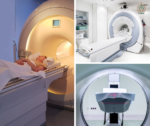
MRI technicians are highly trained healthcare professionals who use magnetic resonance imaging (MRI) scans to diagnose and treat illnesses. Pursuing a course in MRI technology is an ideal way to gain the skills and knowledge needed to become a successful MRI technician. This article provides information on completing a course in MRI technology, including what students learn, the qualifications required, and how to find qualified MRI technician courses.
Introduction
MRI technicians are a vital part of the medical field, responsible for performing MRI scans and interpreting results. An MRI technician course provides aspiring professionals with the knowledge and experience needed to excel in this career. Students receive comprehensive training that includes learning to assess patient conditions, operate imaging equipment, document findings, and maintain high standards of patient care.
A typical MRI technician course covers topics such as anatomy and physiology, medical terminology, radiation safety principles, imaging technology fundamentals, protocol development and implementation processes. Additionally, students gain hands-on experience by learning how to position patients correctly during exams and perform various types of scans. Becoming an MRI technician requires passing a certification exam administered by the American Registry of Radiologic Technologists (ARRT).
Overview of MRI Technology
Magnetic resonance imaging (MRI) technology is an advanced medical imaging tool used to diagnose a variety of illnesses and conditions. It relies on the use of strong magnetic fields and radio waves to create detailed images of internal organs, bones, soft tissues, nerves, vessels, and other body structures. MRI offers better image quality than other imaging techniques such as X-rays or computed tomography (CT) scans. It is also often used in research studies due to its ability to yield more accurate information regarding the anatomy and function of the body than any other modality.
MRI machines use strong magnets that are up to 30 000 times stronger than Earth’s magnetic field in order to excite the nuclei of atoms found within the human body. Radio frequency pulses are then applied which cause these atoms to emit signals that can be detected by special receivers located within the MRI machine.
Requirements for Becoming an MRI Technician
Becoming an MRI technician requires a combination of specialized knowledge, experience and certifications. MRI technicians are responsible for operating the imaging equipment that produces detailed images of the body’s internal organs and tissues. In order to become an MRI technician, candidates must complete formal education in radiologic sciences and gain hands-on experience with medical imaging technology.
A minimum entry-level requirement is a two-year diploma in radiography or radiology from an accredited college or university. During this educational program, students learn about radiation safety protocols, positioning techniques, diagnostic imaging procedures and medical terminology.
Benefits of Becoming an MRI Technician
Maintaining a career in MRI technology can be an incredibly rewarding choice for many individuals. Magnetic Resonance Imaging (MRI) is a growing field with plenty of opportunities to offer those looking to become MRI technicians. Not only do MRI technicians enjoy the satisfaction of working in a high-tech medical environment, they also benefit from competitive wages, job security and the opportunity to build their technical skills and knowledge over time.
Conclusion
Completing this course is essential for those who wish to work in this field, as it provides them with an extensive knowledge and understanding of the different aspects of working with magnetic resonance imaging. The comprehensive program allows students to gain hands-on experience in both clinical and research settings, so they can be better prepared for their future career. Additionally, graduates are able to apply their skills in real-world scenarios and use current technologies that help ensure patient safety.
After completing the MRI technician course, students have a greater opportunity to get hired by employers due to having acquired valuable knowledge and expertise related to running scans on patients. This helps give them an advantage over other candidates when competing for jobs within the medical field. Unlocking Career Potential.
